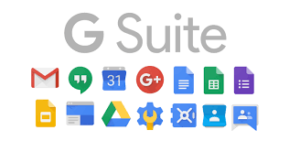 When it comes to your business email, making the right decision could be critical to your business. After all, your ability to communicate with customers, do business with partners and collaborate with team members inside – and outside – your company depend on the solution you choose. If the email solution you choose can’t grow with you, doesn’t provide the security and functionality you need, or if your organization simply can’t support it, it could turn out to be a costly mistake.
When it comes to your business email, making the right decision could be critical to your business. After all, your ability to communicate with customers, do business with partners and collaborate with team members inside – and outside – your company depend on the solution you choose. If the email solution you choose can’t grow with you, doesn’t provide the security and functionality you need, or if your organization simply can’t support it, it could turn out to be a costly mistake.
Once upon a time, choosing an email solution was pretty simple. Most email systems were hosted on on-premise servers, and there were few options. Most companies chose Exchange. + Outlook…or one of a few other vendors. Today, those on-premise email options still exist, but they’re now joined by cloud email – and a choice between Office 365 and G Suite.
Transitioning to cloud email enables most organizations to get the email service they need, with a much lower cost and smaller technology footprint in the organization. But how do you choose the option that’s right for your business? We’ll cover some of the reasons you should be using the cloud for your business email, the pros and cons of each option, and give our final verdict.
Here at Reperio, we believe most businesses should be using cloud providers for their email service. That’s why we offer Office 365 or G-Suite for our clients at retail rates. We provide free migration to Office 365 for most businesses, with simple monthly billing that makes your technology costs more predictable. This allows us to provide the best level of support for your organization’s email and technology needs, without the high costs of maintaining servers on your premises.
Why do we believe so strongly in cloud email for your business? Here are the top three reasons:
Availability: Availability or uptime is a key consideration when moving services to the cloud. Microsoft’s published uptime for Office 365 exceeds 99.9 percent. Google’s published availability rates also exceed 99.9 percent. These uptime percentages equate to just a few minutes of downtime per month.
Security: Security is a huge focus for cloud email vendors in the current business environment. That’s why vendors like Microsoft are leading the way with tools like Advanced Threat Protection, which helps to identify and block dangerous emails. Google also offers top notch security, with 100% email encryption and proprietary technologies like perfect forward security.
Storage: Today’s cloud email solutions provide an immense amount of data storage: between 25 and 50 GB per mailbox. And both G Suite and Office 365 come with file storage, replacing the need to use services like Box or DropBox.
Just how much data is 50GB, anyway? Consider the following. The average email is about 75 KB of data; if users receive about 100 such emails per day, they’re using about 7.5MB per day. At that rate, it would take approximately 18 years to use up a 50GB data limit. So a cloud email solution that delivers 25 to 50 GB of storage could take more than a decade to fully use. In fact, it will last your organization’s users far longer than an on-premise server, given that the average life cycle of a server is about three to five years.
For organizations that need reliability, functionality and cost effectiveness, cloud email is the clear option. It provides enterprise-grade email functionality at a fraction of the cost of on-premises email, and doesn’t require the organization to support, upgrade or replace servers.
But between Office 365 of Google G Suite, which cloud email option should you choose? Let’s compare them.
 As a cloud native application, Google’s G Suite probably provides the best web based experience for email navigation of any cloud or on premise email vendor. It also provides some of the industry’s best spam filtering. And G Suite provides access to the rest of the G Suite ecosystem: Google Docs, Sheets, Calendar, Drive and more.
As a cloud native application, Google’s G Suite probably provides the best web based experience for email navigation of any cloud or on premise email vendor. It also provides some of the industry’s best spam filtering. And G Suite provides access to the rest of the G Suite ecosystem: Google Docs, Sheets, Calendar, Drive and more.
For startups, G Suite may have the advantage since they may not be working with clients or vendors that expect them to use Office. However, for others, there’s often a perception that Office is a more robust or professional application suite, and many partners may be hesitant to collaborate on G Suite documents or files.
Another advantage of G Suite is the large number of integrations for various business functions available through the G Suite Marketplace. Integrations to Freshbooks, QuickBooks and other invoice and expense processing tools, DocuSign, Asana, Trello and many others are just a few of the options G Suite users can choose.
G Suite for Business costs $12 per user per month, which includes Gmail, Calendar, Hangouts for individual or group chat and video conferencing, unlimited Drive space, plus access to the the G Suite productivity tool set: Docs, Sheets and more. For larger companies and those that need more robust security, G Suite Enterprise is $25 per user per month and includes all of the above plus an upgraded security toolset and identity management.
 For $12.50 per user per month, or roughly the same price as G Suite Business, Microsoft Office 365 offers access to the Office Desktop applications that are used by roughly 85 percent of business users. Most businesses can benefit from the near ubiquity of Office, given that most users are already trained to use the tools, and most collaboration partners will also be familiar with using Office rather than G Suite tools.
For $12.50 per user per month, or roughly the same price as G Suite Business, Microsoft Office 365 offers access to the Office Desktop applications that are used by roughly 85 percent of business users. Most businesses can benefit from the near ubiquity of Office, given that most users are already trained to use the tools, and most collaboration partners will also be familiar with using Office rather than G Suite tools.
Users must use the Office desktop applications to get the full feature set, but Office 365 offers access to some impressive tools. One of these is Teams, which is included with the Office 365 subscription. Teams allows organizations to forgo the use of Slack and other collaboration tools, and complies with Federal regulations such as HIPAA. Like Google Hangouts, Teams offers chat, calling and video conferencing, but the tools within teams are more robust.
Another feature unique to Office 365 is Azure active directory (part of Azure), which allows a two-way sync between on premise and cloud for passwords, which enhances security by making identity management much simpler. This can be used instead of tools like Authy or Duo to provide 2 factor authentication. Office 365 also offers the best device sync, with Microsoft’s Active Sync and has the best coverage for end devices.
One slight disadvantage of Office 365 cloud email, however, is that advanced spam and phishing protection is extra. That’s not a problem for Reperio customers, however, as we use Barracuda ESS to make sure our customers have the industry’s best email security.
We chose Office 365 primarily because it includes most of the applications that are widely use in businesses. As an added bonus, you get mobile-friendly versions of the apps which, combined with the cloud, allows you to access your documents anywhere and anytime.
Jacob Dayan, CEO and co-founder of Community Tax
Google G Suite and Microsoft Office 365 share roughly comparable costs, so how do you decide between the two? Well, here at Reperio, we support both options but we think that Office 365 has the advantage. The Office tools are simply a bit more robust, and they are used by the vast majority of businesses and individuals, which relieves your organization of having to train users on the tools.
In addition, the Teams app is one of the best collaboration tools available, and Microsoft’s focus on compliance is an advantage for businesses in industries where that is a concern.
If your business is ready to transition to cloud email, contact Reperio today and we’ll deliver the tools and service your business needs to communicate and collaborate quickly and easily.
Your information is 100% secure